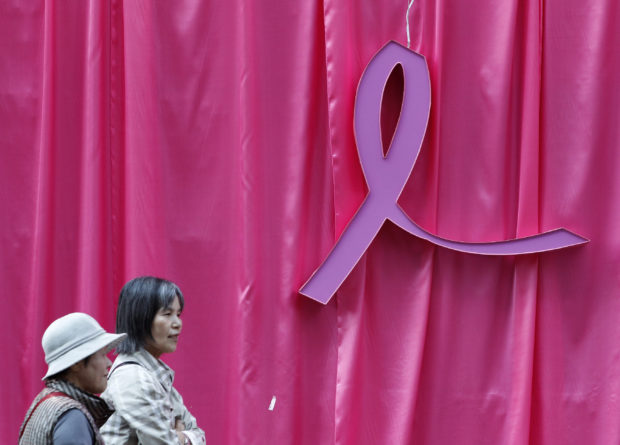UP scientist, student discover gene linking breast cancer to stress, irregular body clock

File photo shows visitors walking past a sculpture of a pink ribbon installed to promote the “Pink Ribbon” breast cancer awareness campaign in Seoul in 2011. (REUTERS)
MANILA, Philippines — A scientist and her student from the University of the Philippines – Diliman (UPD) have discovered a gene connecting cases of breast cancer to stress, and irregularities in the body clock.
Molecular biologist Dr. Pia Bagamasbad and her student, Weand Ybañez “discovered a gene called Krüppel-like factor 9 (KLF9) that suppresses tumor growth and links the effects of stress, regulation of the light-dark cycle, and breast cancer” said the UPD College of Science in a statement on Thursday.
The scientists explained that humans have a 24-hour biological pattern called the “circadian cycle”, commonly known as a body clock.
The body clock is controlled by the 12-hour light and dark cycle of the day.
According to Bagamasbad and Ybañez’s study, KLF9 “suppresses the growth and spread of breast cancer cells.
Article continues after this advertisementThe KLF9 gene, however, has a cyclical pattern that is part of a healthy body clock.
Article continues after this advertisement“Circadian disruption is an emerging driver of breast cancer, with epidemiological studies linking shift work and chronic jet lag to increased breast cancer risk,” said the researchers in their study.
This means that people like night shift workers and frequent international travelers who have an abnormal sleeping schedule may be more susceptible to breast cancer, according to Bagamasbad’s research work entitled “Krüppel-like factor 9 (KLF9) links hormone dysregulation and circadian disruption to breast cancer pathogenesis,”
She said that the discovery of the gene can help people better understand how cancer spreads in the body, as well as how to manage and treat it.
She also emphasized the need for policies and interventions to protect the overall health of people.
RELATED STORIES:
Breast cancer cases in PH ‘staggering’ – health expert
Long lines, lengthy treatment wear out PH cancer patients